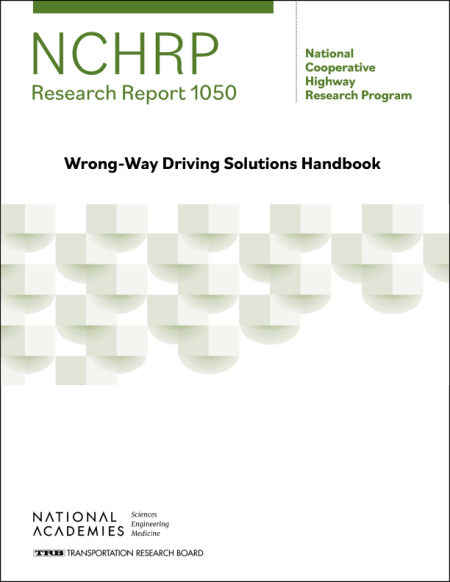Wrong-Way Driving Solutions Handbook
The Transportation Research Board's (TRB) National Cooperative Highway Research Program (NCHRP) has released their Wrong-Way Driving Solutions Handbook (NCHRP Research Report 1050) to help provide solutions to wrong-way driving accidents.
Wrong-way driving (WWD) crashes cause hundreds of fatalities and thousands of injuries annually in the US. Although WWD crashes have been a concern since the advent of access-controlled divided roadways, the problem persists despite efforts to address it over time.
Human factors, such as inexperience, aging, and alcohol and drug use, can cause driver confusion and lead to WWD. While enforcement and education are key countermeasures, other strategies such as red retroreflective strips on signs are also important.
Wrong-Way Driving Solutions, Policy, and Guidelines (NCHRP Web-Only Document 357) was also released this past week as a companion to the report.
Access the full report here
What is the NCHRP?
The National Cooperative Highway Research Program conducts research in problem areas that affect highway planning, design, construction, operation, and maintenance in the United States.
Administered under the Transportation Research Board (TRB), the NCHRP is a collaborative effort between the Federal Highway Administration (FHWA) and the National Academy of Sciences.

